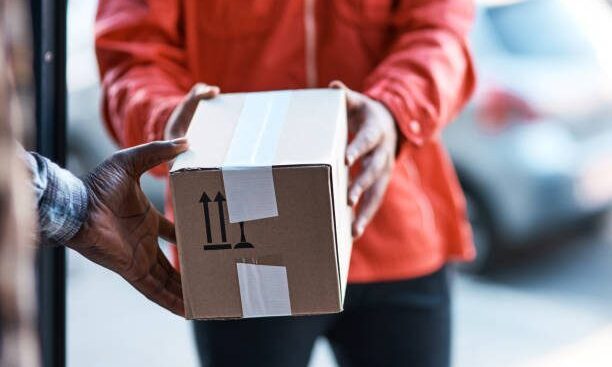Why is Rachel Reeves reviewing the Low Value Import Scheme?
Retail Sector explains what the Low Value Import Scheme is, why Donald Trump’s trade war with China has brought it into focus and what Rachel Reeves can do about it

Register to get 1 free article
Reveal the article below by registering for our email newsletter.
Want unlimited access? View Plans
Already have an account? Sign in
The global economy is currently experiencing turbulent times as a result of Donald Trump’s trade war. Currys CEO Alex Baldock, alongside a number of other retail CEOs, recently warned that more Chinese products could “flood” the UK and Europe market through platforms like Temu, Shein and Amazon, as a result. What is clear is that British retail is facing struggles both at home and abroad with the seemingly continuous rise in costs, uncertain consumer demand squeezing already razor-thin margins and the potential effects of these tariffs which could make it harder for retailers to export goods to the US. Increased competition then, is likely at the bottom of every retailer’s wishlist this year. However Baldock’s warning has not fallen on deaf ears with chancellor Rachel Reeves recently announcing she will launch a review into the Low Import Value Scheme, with an eye on protecting British retailers.
What is the Low Import Value Scheme?
The LIVS currently allows goods valued under £135 to come into the UK without customs duties, which has made it easier for sellers, especially from China, to import low-cost products into the UK. Many other countries have similar policies which allow cheaper goods to be imported without checks but many have looked to alter or remove theirs upon recent developments.
For example, the US had the de minimis exemption, a trade loophole that dates back to the 1930s allowing items imported into the US under the value of $800 to enter free of duty and taxes, instead being “subject to expedited clearance processing”. Baldock’s fears then align with the fact that the US removal further increases the chances that Chinese companies looking to alternative markets to dump goods previously set for the US. The price of Shein products in the US have already risen by as much as 377% which will surely put off consumers. Should the LIVS continue in its current form then the UK will become one of those attractive markets.
Why does the Low Import Value Scheme matter?
Retailers are worried that a sudden influx of Chinese products, that have an unfair sellers advantage of not needing to adhere to the same regulations and standards as UK businesses, will have an unmitigated impact as consumers choose to purchase the cheaper Chinese goods on offer in a time when retail is already struggling as a result of a number of macro-economic factors and government decisions. If the current loophole remains open, British retailers, especially small and medium sized firms could be priced out of the market. Alongside this, repeated undercutting could depress the prices of goods in certain categories to a point where it would no longer make financial sense to keep producing these products.
There is also an issue of consumer confidence and safety. If the LIVS is not reigned in, more non-compliant or dangerous goods could enter the UK market, from flammable textiles to electronics lacking the requisite certification. This puts shoppers at risk as they may unknowingly purchase an unsafe product but also weakens the overall integrity of product standards in the UK.
As such, Reeves’ decision to launch a review has been welcomed by a number of stakeholders in the retail space. British Retail Consortium CEO Helen Dickinson stated that the announcement showed that the government has “listened to the concerns and representations of retailers and that it is prepared to take swift action to protect consumers from goods being dumped in the UK, many of which fail to meet UK environmental and ethical standards, as a result of global trade turmoil.”
“A review of this policy, which was designed to reduce the burden on low volume, low value imports, was already needed. With retailers seeing a rise in the number of potentially non-compliant products entering the UK market, it’s even more critical now,” she added.
So what can the chancellor do?
The easiest thing would be to follow the lead of Trump and remove the LIVS completely. Viktor Clintom, chief operations manager at freight forwarding company Clintopia, believes that this would “level the playing field for UK retailers, particularly small businesses that struggle to compete with cheap imports”.
He also believes that removal of the scheme could also put the UK in a stronger position when it comes to trade negotiations with some countries including China. It must be said there has been no indication from the government that it is looking to do any kind of deal with China, but following trade deals with India and the US it could be the next big market to target.
However, Clintom cautioned that the removal of the scheme could have unintended consequences for British retailers, leading to increased costs and delays in the logistics process, potentially affecting consumers as well as businesses. “While removing the exemption could help UK retailers in the long run, it could also drive up prices for consumers and disrupt the current logistics model,” he explains. It could cause issues for smaller businesses which import things in smaller quantities which would have been covered by the LIVS. While removal would be intended to protect these kinds of businesses from the threat of Chinese dumping, it could end up increasing their costs or forcing them to change suppliers which is costly and time consuming.
If complete removal could cause issues for retailers, specifically small businesses Clintom would like to see the chancellor get tougher on Chinese companies. “Tightening enforcement on goods being misdeclared or focused scrutiny on the platforms that facilitate these imports (like Shein or Temu) could be an alternative approach. Targeting these platforms could curb the flow of cheap imports without completely disrupting the system,” he states.
Reeves must also ensure that she does not upset the Chinese government with any potential moves as they may retaliate with their own sanctions, causing issues for UK retailers who export or import goods to and from China.
For Reeves, and for UK retail, the challenge is to protect UK businesses without alienating consumers who have come to expect cheap, fast-delivered products. Whatever course she chooses, the outcome of this review could have a vital impact on how Britain’s retail landscape adapts to the new world of global trade in the years to come.







